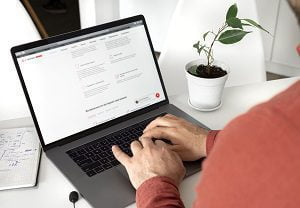Ariadne Fabiane Velosa
Lawyer at Marcos Martins Advogados
Due to the Covid-19 pandemic and its adaptations for work, one of which is the home office, the Public Ministry of Labor (MPT) has released a technical note[1] with 17 recommended practices for companies, unions and public administration bodies during teleworking, in order to guarantee the health and other rights of employees.
The fact is that many employees have shown an interest in joining the home office because of the many benefits, such as increased productivity and reduced time and expenses for commuting and eating out.
In view of this, in this technical note the Public Prosecutor’s Office sought to address relevant issues, such as advising workers to respect the contractual working hours in the teleworking/home office modality and on virtual platforms, as well as advocating measures to ensure legal breaks and the right to disconnect.
Other points addressed in the technical note include infrastructure for work, preservation of privacy, reimbursement of expenses, information on employee performance, ergonomics, self-care, use of image, freedom of expression and adjusting the schedule to family needs:
“3. OBSERVE the parameters of ergonomics, whether in terms of physical or cognitive working conditions (e.g. furniture and work equipment, physical posture, network connection, design of online work platforms), work organization (the content of tasks, time demands, pace of activity), and interpersonal relations in the work environment (formatting of meetings, transmission of tasks to be carried out, feedback on work carried out), offering or reimbursing the goods necessary to meet these parameters, in accordance with the law, as well as limitations, procedures and determinations of the Control Bodies, such as the Courts of Auditors in the case of the Public Administration.
5. OFFER technological support, technical guidance and training to workers to carry out their work remotely and on virtual platforms, under the terms of ILO Convention 142 and art. 205 of the Constitution of the Republic.
6. INSTRUCT employees, in an express, clear and objective manner, about the precautions to be taken in order to avoid physical and mental illnesses and accidents at work, as well as adopting safety measures such as breaks and work exercises.
7. OBSERVE the contractual working hours in the adaptation of activities in the form of teleworking and virtual platforms, with the compatibility of business needs and workers’ family responsibilities (dependent people under their care) in the elaboration of work schedules that accommodate the needs of family life, especially nursing mothers, including special flexibility for time changes and the use of breaks (NR 17, Annex II, 5.1.2.1).
8. ADOPT digital etiquette models to guide the entire team, specifying times for meeting virtual demands, ensuring legal rest periods and the right to disconnect, as well as measures to prevent systematic intimidation (bullying) in the workplace, be it verbal, moral, sexual, social, psychological, physical, material and virtual, which can be characterized by personal insults, systematic comments and derogatory nicknames, threats by any means, prejudiced expressions, jokes, memes, by analogous application of articles 3 and 4 of Law no. 13.185/2015. 13.185/2015.
9. GUARANTEE respect for the right to image and privacy of workers, either by guiding the performance of the service in a way that is less invasive to these fundamental rights, offering the performance of services preferably through private computer platforms, avatars, standardized images or online transmission models.
10. Ensure that the use of image and voice is preceded by the express consent of the workers, especially when it comes to the production of activities to be broadcast on open digital platforms where they are used.”
There has been a lot of criticism of the technical note issued by the Labor Prosecutor’s Office, however, it is worth remembering that recommendations do not have the force of law, as any change in legislation on the subject must be created by the National Congress or issued by Provisional Measure by the President of the Republic.
However, the note issued by the MPT serves as a precaution, especially for companies, which need to understand that teleworking requires certain precautions, especially for companies that decide to adopt this modality definitively. This is because the company’s liability as a result of “in vigilando” guilt remains.
Guilt “in vigilando” occurs when the worker, under the company’s responsibility, suffers damage or an accident that could have been prevented due to the company’s supervision or adoption of preventive measures, i.e. even at a distance, the company can be held responsible for factors that arise from its lack of vigilance over what is being done by its employee.
For this reason, the technical note should not serve as a disincentive for companies to use the home office, but rather as a warning that this modality, just like face-to-face work, requires companies to be vigilant and to comply with labor standards, such as complying with the working day, having a suitable environment to avoid future occupational illnesses due to a lack of ergonomics, among others.
It is therefore recommended that companies have legal advice to analyze their compliance with current regulations in order to implement the home office definitively.
Marcos Martins Advogados is attentive and up-to-date on changes to legislation as a result of the pandemic and new contractual arrangements, and is available to help companies adopt strategic and targeted solutions.
[1] https://mpt.mp.br/pgt/noticias/nota-tecnica-n-17-sobre-trabalho-remoto-gt-covid-19-e-gt-nanotecnologia-1.pdf








